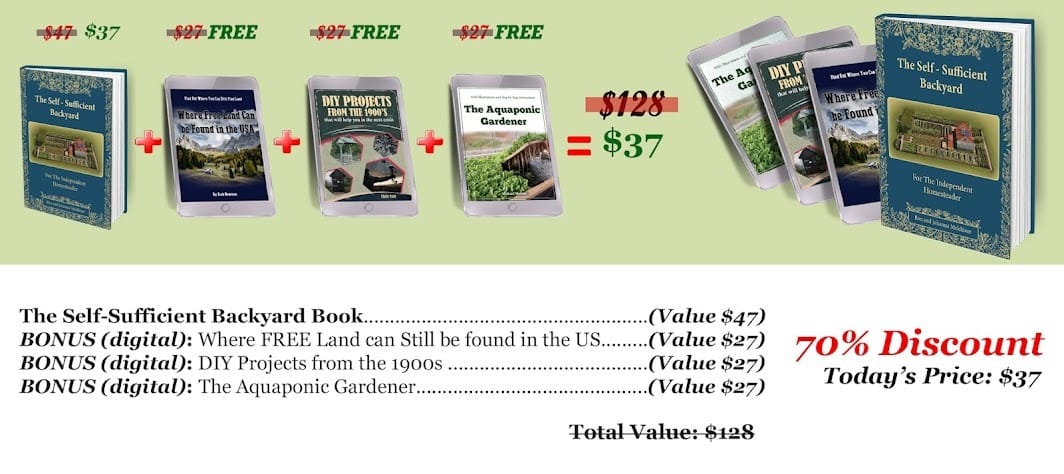- The Homestead Movement
- Posts
- Soothe Ulcers Naturally 🌿 + The 20 Social Habits Every Homesteader Should Know
Soothe Ulcers Naturally 🌿 + The 20 Social Habits Every Homesteader Should Know
Question of the day: Which crop never cooperates in your garden, no matter what you do?
NOTICE: Formerly known as The Steady Homestead, we’ve rebranded to The Homestead Movement! Same great content, just a fresh new name. 😊

QUOTE OF THE DAY
"The less you need, the richer you are."
— Doris Janzen Longacre
HOMESTEAD TIP OF THE DAY
Take advantage of the strong summer sun by solar-drying herbs, fruit, or even tomatoes. Lay items on mesh screens or old window screens covered with cheesecloth, and place them in a well-ventilated, shaded-but-warm spot like a porch or covered table. Turn items daily. Herbs can dry in 1–3 days; fruits in 3–5 depending on thickness. It’s a free, energy-saving way to preserve flavor and reduce waste.
IN TODAY'S EDITION
Homestead Tip 🌱
Poll Results From Last Tuesday 📊
All Things Homestead: Foods and Herbs That Help With Ulcers 🌿
Personal Development: Building Social Intelligence on the Homestead: 20 Simple Habits That Strengthen Every Relationship 🌻
Today's Top Picks 🛍️
Let’s Keep It Reel 🤣
BROUGHT TO YOU BY

Ever Look at a Wild Plant and Think… Is this safe to eat? Or will it kill me?
Same here.
I used to scroll past foraging posts thinking, “That’s cool… but I’d probably poison myself.”
Then grocery prices skyrocketed. And suddenly, knowing what wild food grows around me felt less like a hobby and more like a survival skill.
The problem? Most guides were either too vague or way too scientific. I just wanted someone to show me what’s safe, what’s useful, and what’s right outside my door.
That’s why I love Wild Plants Guide. It’s designed for real people (not botanists) who want to:
Forage with confidence
Identify wild plants safely
Start building herbal & edible knowledge
If you’ve ever wished you could trust what’s growing in your own backyard, this is your guide.
👉 Explore the Wild Plants Guide Here
Your knowledge could feed your family someday. Why not start now?
POLL RESULTS FROM LAST TUESDAY
What part of your homestead brings you the most peace?
🟩🟩🟩🟩🟩🟩 Morning garden walks
🟨🟨🟨⬜️⬜️⬜️ Feeding animals
🟨🟨⬜️⬜️⬜️⬜️ Hanging laundry outside
🟨🟨🟨🟨⬜️⬜️ Cooking with homegrown food
🟨⬜️⬜️⬜️⬜️⬜️ Tell us your peaceful routine 🌞
via @beehiiv polls
Feel free to participate in fun polls in our next newsletters! 😉
Also, follow us on our social media accounts for daily homesteading inspiration and updates.
ALL THINGS HOMESTEAD
Soothing Stomachs, Naturally: Foods and Herbs That Help With Ulcers 🌿
Because healing starts in the kitchen and the garden.
If you’ve ever dealt with stomach ulcers, you already know the sharp burn, the constant discomfort, and how easily everyday foods can make it worse. Ulcers can turn mealtimes into a guessing game… what will help, and what will hurt?
The good news? Homesteaders and homemakers have a big advantage: access to fresh, healing foods and herbs that work gently and naturally. You don’t have to rely on synthetic fixes alone. With the right choices in your pantry and garden, you can support your gut and feel more at ease every day.
Herbs That Help Heal
These herbs are easy to grow and even easier to use in teas, tinctures, or cooking. Each one supports stomach health and soothes inflammation.
Licorice Root (DGL)
This form of licorice doesn’t raise blood pressure and protects the stomach lining. Make a tea or use it as a chewable supplement before meals.Chamomile
Gentle and calming, chamomile reduces stomach spasms and helps ulcers heal. A warm chamomile tea after dinner can ease both stress and digestion.Slippery Elm
This herb creates a soothing gel when mixed with water. It coats the stomach and helps repair damaged tissue. Use powdered slippery elm in warm water before meals.Marshmallow Root
Like slippery elm, this root soothes and protects irritated stomach linings. Brew it as a tea or add to homemade gut-friendly tonics.Turmeric
Turmeric fights inflammation and supports healing. Add it to soups, curries, or blend with warm milk for a calming “golden milk” drink.Ginger
Known for settling the stomach, ginger helps reduce ulcer pain and supports digestion. Use fresh ginger in teas or grated over meals.Garlic
Though it seems strong, garlic actually helps kill the bacteria (H. pylori) often behind ulcers. Eat it cooked, or mix a small amount of raw garlic into salad dressings.Aloe Vera
The gel from aloe supports gut healing. Use it in smoothies or drink diluted aloe juice (make sure it’s food-safe).Cabbage Juice
Old-fashioned but effective. Cabbage juice contains compounds that speed up ulcer repair. Start with small amounts mixed into veggie juice.Calendula
Often used in salves, calendula also helps internally. Steep dried petals in hot water to make a healing tea that supports the digestive tract.
🚫 Foods to Avoid
These foods irritate ulcers or increase stomach acid. Avoid them to give your gut a chance to recover:
Spicy foods like hot peppers, salsas, or chili powders.
Caffeine in coffee, soda, and even some teas.
Alcohol in any form even fermented drinks.
Chocolate, which relaxes the stomach valve and increases acid.
Citrus fruits (oranges, lemons) that may sting open sores.
Tomatoes and sauces, especially when raw.
Red meats, which are harder to digest.
Whole milk and creamy dairy products.
Most carbonated drinks, even sparkling water.
✅ Foods to Enjoy
These foods are gentle, healing, and work with your herbs to help rebuild a strong gut lining:
Fiber-rich foods like lentils, split peas, and bran support digestion and keep things moving.
Leafy greens such as kale, spinach, and collards are packed with nutrients and gentle on the stomach.
Fermented foods like yogurt, kombucha, and sauerkraut add good bacteria to help balance gut health.
Garlic, in moderate amounts, supports healing and kills harmful bacteria.
Apples and berries are antioxidant-rich and less acidic than citrus fruits.
Olive oil is easy to digest and helps reduce inflammation.
Turmeric (again!) works wonders as both food and medicine.
From Garden to Table to Healing
You don’t need to overhaul everything at once. Just a few daily changes can bring comfort. Brew an herbal tea after meals. Skip the tomato-heavy pasta and try greens with olive oil instead. Keep a journal to track what foods help or hurt.
Growing these herbs at home makes healing even simpler. Chamomile, calendula, garlic, and mint grow well in containers. Ginger and turmeric thrive indoors or in warm climates. With just a few planters, you can keep a medicine cabinet growing right on your porch.
So, just keep going. You’ve got what it takes to heal naturally, one bite at a time.
Our Culture, Clarified—Every Week
Every week, 1440 hands knowledge-seekers a guided tour through a single social current. We stitch together history, data, and expert voices so you don’t just witness change—you understand it. One concise, fact-first read turns surface headlines into the deeper “why” that satisfies your curiosity and keeps your worldview expanding.
PERSONAL DEVELOPMENT
Building Social Intelligence on the Homestead: 20 Simple Habits That Strengthen Every Relationship 🌻
Homesteaders and homemakers carry more than just the weight of chores, they carry relationships. Whether it’s with partners, kids, friends, neighbors, or community groups, healthy communication makes everything smoother.
Here are 20 habits, inspired by the list above, that build better connections one conversation at a time.
Everyday Habits That Improve Communication
Focus on the issue, not the person.
When there’s conflict, stay kind to the person but firm about the problem. “You forgot the eggs” is better than “You never help.”Treat everyone like a teacher.
Each person brings a lesson. Ask what they’re showing you, not just how they bother you.Make eye contact and pause before you speak.
You don’t need a lot of words to be confident. Just a calm pause and a steady glance say more than rambling ever will.Make people feel seen, heard, and remembered.
Use names, recall details, and circle back later with care. “How’s your garden doing?” means more than small talk.Use names often.
Most folks love hearing their own name. It feels warm, familiar, and makes them feel valued. Dale Carnegie was onto something.Praise in public, correct in private.
Call out good work in front of others. Save the tough stuff for quiet moments. Respect always leaves the door open.Lead with care before offering feedback.
If someone knows you’re rooting for them, they’ll listen better. “I care about you, so I’m sharing this” goes a long way.Talk about expectations before they’re missed.
If you need help with dinner, say it clearly. Silent expectations lead to loud frustration.Help first, ask later.
The best networkers are helpers. Bring soup before asking for advice. Show up before expecting anything in return.Assume people want connection.
Most folks feel lonely, even in crowds. Smile first. Say hello. Ask the name of the clerk at the feed store.
Simple Practices for Deeper Bonds
Practice introducing yourself.
Even a short “Hi, I’m Anna” can build confidence. Especially at markets, potlucks, or church events.Respond with “yes, and...” instead of “but.”
This keeps the conversation moving forward. It builds on others' ideas instead of shutting them down.Avoid gossip and complaining.
Talking behind people’s backs never builds trust. Keep it kind or keep it quiet.Use stories to explain, teach, or share.
People remember stories, not instructions. Try using a personal story to guide a kid or explain a boundary.Learn from friendly animals.
Dogs are cheerful, forgiving, and curious. Their approach can teach us a lot about staying light and welcoming.Your relationship health affects your whole life.
A tense home makes everything harder… sleep, food, focus. Work on relationships the same way you tend a garden: consistently.Build an inner circle who gives real feedback.
Find people who love you enough to be honest. These are the friends who’ll tell you when you’re being unfair or out of line.Say “I don’t know yet” without shame.
Confidence doesn’t mean knowing everything. It means being okay with learning.Record your voice sometimes.
Whether it's a class you’re teaching or a family talk, listening back can show habits, like interrupting or tone, you didn’t notice.Raise others, don’t just lead them.
Good leaders create more leaders. Involve your kids, train new volunteers, and let others take ownership too.
A Quick Challenge to Try Today
Pick two of these tips and use them in your next interaction. Maybe you praise someone publicly. Maybe you just say a warm “hello” to someone new. Notice how it feels, and how they respond.
You’re not just growing vegetables or raising chickens. You’re also shaping conversations, building trust, and teaching others how to treat you.
And that kind of homesteading? It lasts longer than any harvest.
THE STEADY HOME’S GIGGLE CHAMBER
Why did the garden bed file for a break? Too many emotional support weeds.

LET’S KEEP IT REEL!
I've put together some fantastic farm videos that are sure to make you laugh. Take a look and enjoy the fun!
Homestead planning is just pure confidence, right? 😄
Pretty sure I need one of these “robot” lawn mowers in my life too 😂
Pretty sure this is me when I’m beekeeping! 😂🐝


